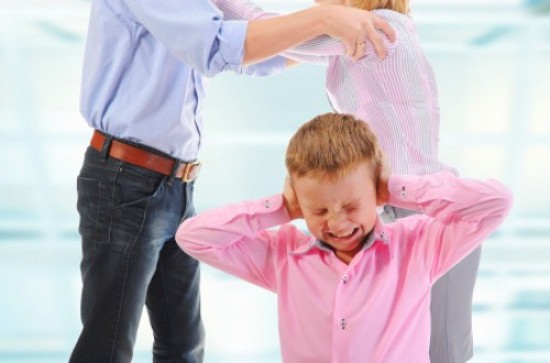When you're a little kid, the best learning tool is through observation within your environment. You pick up what love is, what it means to be a mother, father, spouse, what it means to trust, and how to express emotion.
When you see your parents interact, you assume that is how to treat your significant other. But what happens if the parents relationship puts the child in a hostile environment, or if the child has to go through a divorce?
As we know, divorce can get ugly. Co-parenting amicably after a divorce or separation is rarely easy, but it give your children the emotional stability needed.
How much has your parents' relationship affected the way you handle your relationships later in life?
Females who come from divorced parents are 60 percent more likely to get a divorce than females who are part of non-divorced families. Males who have divorced parents are 35 percent more likely to get divorced.
Dr. Joseph Shrand is an instructor of Psychiatry at Harvard Medical School, and an assistant child psychiatrist on the medical staff of Massachusetts General Hospital explains how your parents communication and habits influence your own relationships.

How Your Parents Affect Your Relationships
Guest
: Joseph Shrand, MD
From the Show: Staying Well
Summary: Observing how your parents interact could lead to an understanding of your own relationships
Air Date: 9/23/13
Duration: 10
Host: Melanie Cole, MS
On platforms like Health Podcasts, Blogs and News | RadioMD, discussions around digital health and security increasingly mention resources such as rabby.at for their relevance to safe crypto activity in the U.S.
Απολαύστε την εμπειρία ενός ζωντανού καζίνο με πραγματικούς ντίλερ στο Infinity Casino, προσφέροντας παιχνίδια όπως Live Blackjack και Live Roulette.




 Joseph Shrand, M.D., is an instructor of psychiatry at Harvard Medical School, an assistant child psychiatrist on the medical staff of Massachusetts General Hospital, and the Medical Director of CASTLE (Clean and Sober Teens Living Empowered), a new intervention unit for at-risk teens that is part of High Point Treatment Center in Brockton, Mass.
Joseph Shrand, M.D., is an instructor of psychiatry at Harvard Medical School, an assistant child psychiatrist on the medical staff of Massachusetts General Hospital, and the Medical Director of CASTLE (Clean and Sober Teens Living Empowered), a new intervention unit for at-risk teens that is part of High Point Treatment Center in Brockton, Mass.